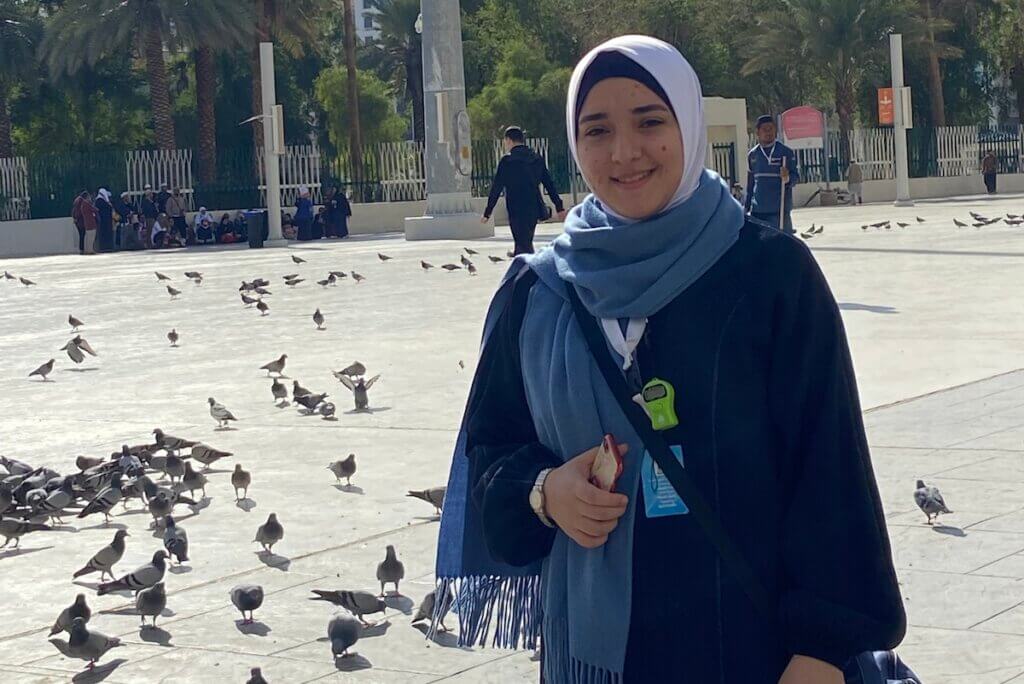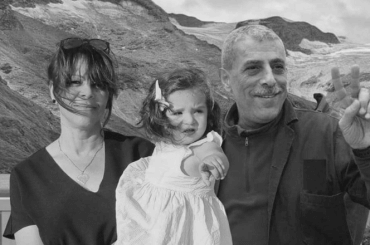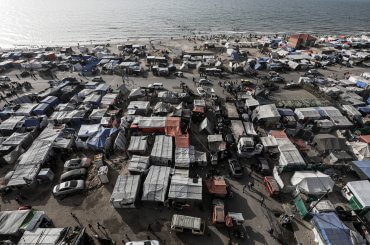Editor’s Note: The following article is part of a campaign to raise money to help Mondoweiss contributor Reem Hamadaqa leave Gaza to receive medical treatment. Please give what you can.
March 7. Evening. My phone rings. “Can you go to a hospital in Deir al-Balah?” Asmaa’, a dear friend who hadn’t called since last October, asked. “When did you last call Reem?”
My heartbeats raced as she mentioned the name of Reem, my close friend, after the word ‘hospital.’
Apologizing for the news she was about to share, and begging me to stay strong, Asmaa’ informed me that Reem was injured and in the hospital and that her parents and two sisters had been “chosen as martyrs.”
‘Sahurah is gone’
“Sahurah is gone” was the only sentence I managed to comprehend from Reem’s sobbing when I called her some hours after learning of the news.
Sahurah was Reem’s mother’s nickname. Sahar, or Sahurah, had just turned 50 only months ago. Reem cared for her as if Sahurah were her daughter.
“You know who Sahurah is,” she cried, reminding me of the memories of her mother she used to share with me.
The Sahurah, who celebrated Reem’s graduation with tears of joy, is gone.
The Sahurah, who tiptoed to the always-working Reem to feed her mangoes without telling her other daughters, is gone.
The Sahurah, who invaded Reem’s room to steal some alone time after long days of work, is gone.
The Sahurah, whose only dream was to live to see her daughters live a happy life, is gone.
“You” was the only answer Reem ever received when she asked her mom about her dreams and wishes.
‘All of them are gone‘
“All of them are gone except me,” Reem wept.
“All of them,” repeated Reem with a trembling voice.
“Reem lies on her back, unable to move,” Suhad, Reem’s older sister who stayed with her at the hospital, explained to me, describing the scene.
“My sisters Hiba and Ula are gone, too,” Suhad recounted. “My sister Hala’s kids Maryam and Anas are gone.”
“My maternal grandmother, my maternal uncle, and his daughters Shams and Sundus are gone,” Suhad added with a dry yet strong voice.
“Ahmad is alive; Allah kept him for us.”
“We heard their shrieks, Amna. For three days, they had been burning alive,” Suhad explained with a stable voice, not to let Reem harm herself with weeping.
“Tell her something.” Suhad urged me, handing the phone back to Reem.
‘What should I say‘
“What should I say,” I whispered to myself.
What should I tell a friend who is alone, heartbroken, and weeping at the loss of her mom and dad?
What should I tell a friend whom I called and talked to all her family members everyday and teased them all, yet today I called after learning she “survived” a massacre alone?
What should I tell a friend, who waited for the coming of March, spring, or Ramadan, yet hailed them all with a broken heart and broken bones?
What should I tell a friend who loves privacy, is too timid to share the same room with her sisters, but is now in a jammed hospital that is barely called a hospital?
What should I tell a friend, who always ends her call by saying, “I’m fine as long as my family is”?
“I’m coming tomorrow if I live,” was all that I could say.
‘It was like a dream‘
March 8. 11:00 a.m. On the way to Shuada’ Al-Aqsa Hospital. Kites of all colors. The sea shows up from the car window. I lean on the window, thinking of Reem. Watching the sea, I allow the rivers of my tears to run, to act strong when I meet Reem.
A cannula is in Reem’s right hand, a pen in her neck, and her right femur and pelvic bones are fractured.
“How can I understand what happened to me? None of the sciences I have learned would ever help me understand,” said Reem with tearful eyes, lying on the bed and holding my hand. No one helped me imagine this scene.
“I removed the stones from my chest and abdomen. My legs were stuck under the rubble. Abed and Said, my cousins, removed them,” Reem recounted.
“I’m thankful Ahmad, my brother, is there. Allah kept him for me. He carried me on his back and ran. I felt too cold. It was like a dream. A nightmare.”
“I’m bored. I can’t move. I can’t even sit. This is the sixth day. I only see nightmares. I don’t sleep. I can’t.”
“I lay on the ground for two days. Ahmad had to ask for a bed. He had to stay up at night and wait near a dying person next to me until he got the bed.”
‘My heart is empty‘
“All of them are gone except me. Dad took Hiba. Mom didn’t take me. They even took Shams, Sundus, Mahmoud, and Hani, my cousins. My heart is empty.”
“We still haven’t given them a proper burial yet. Maybe mom is cold. They are left in the street. I want to bid them last farewell. Even if they managed to bring them to the hospital, I wouldn’t be able to see them,” said Reem, gazing at the ceiling, the only direction she could look at.
“Where is your phone?” Reem asked, adding that her phone was still under the rubble. Reem’s eyes sparkled at the pictures of her smiling mother saved on my phone. Reem wept, hugging her mom’s picture.
Reem’s family were finally buried on March 13, after Israeli forces withdrew from the area.



I cry for Reem!
War is so horrible.
I pray for the suffering people.
We must not let the minority create these situations.